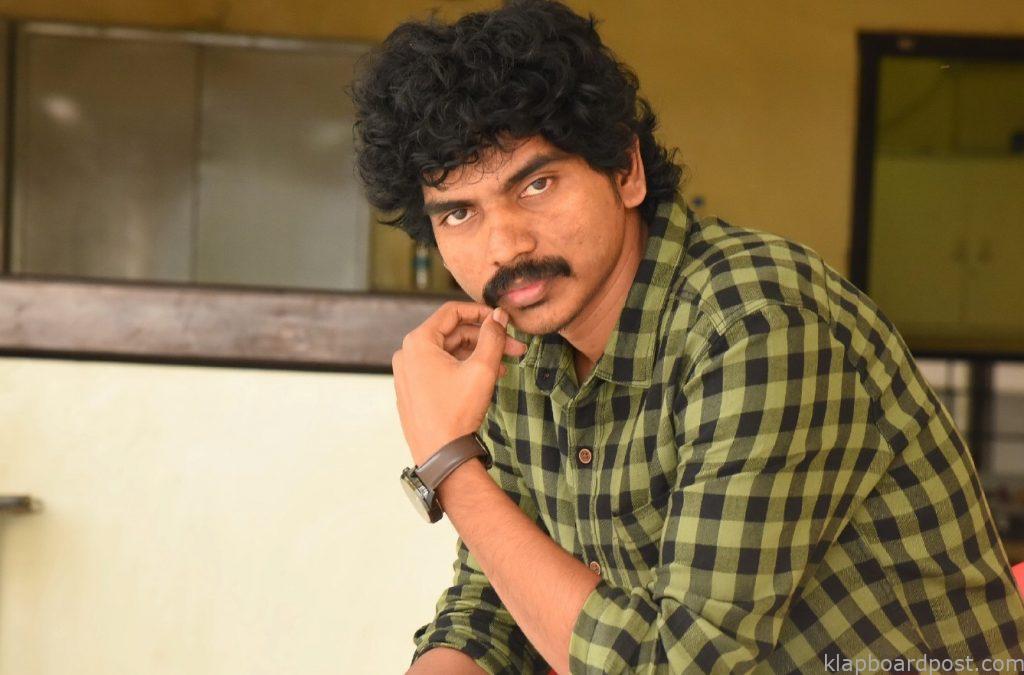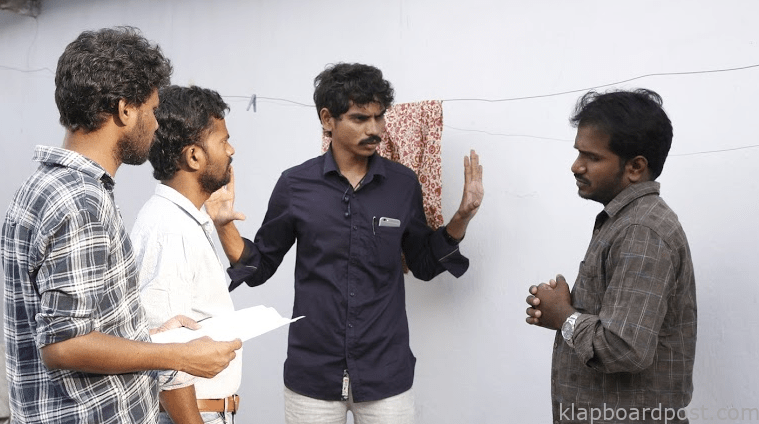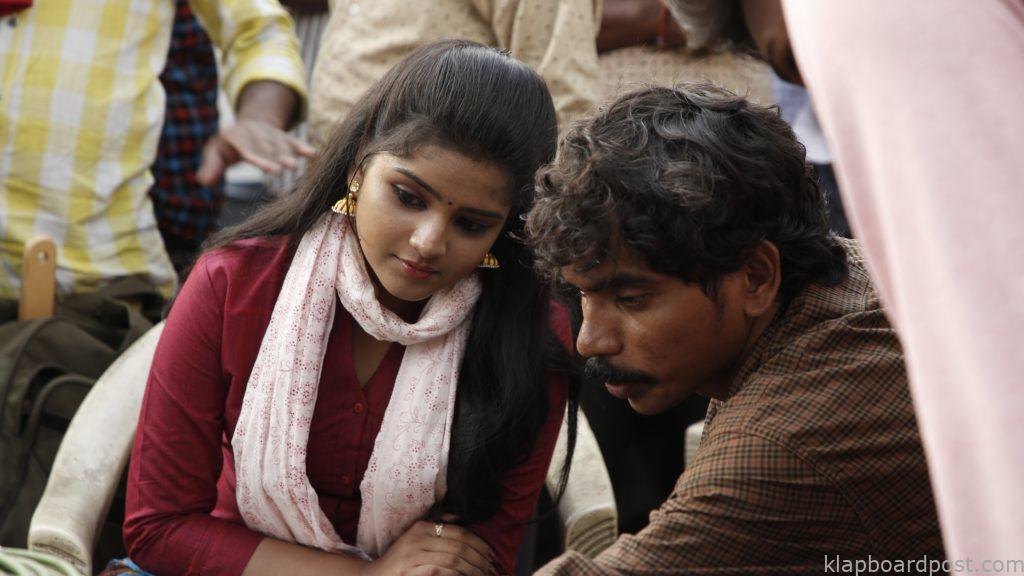Srivathsan Nadadhur
Nizamabad-born Thirupathi SR turned director with the Telugu film Utthara in 2020, after a brief stint with short films that earned him many honours at several film festivals across the country. Set amid a rural backdrop with a quirky heist angle, his first film Utthara featured a nondescript cast and had a story filled with unique twists and turns though it didn’t manage to get a wide release. Yet, the filmmaker sees it as a great learning curve that gave him a sense of ‘what it takes to make a good product and ultimately release it in theatres’. Wiser after all the struggles he went through his first film, Thirupathi has next set his eyes on a story conceived around the pandemic. He discusses his filmmaking journey with Klapboardpost.com.

The foundation to the writer in him
During my school days, I used to listen to Chandamama tales and watch shows like Marmadesam on television. More than reading, I was compelled to come up with something on my own that’ll be watched by people and wrote lines for episodes in thick books and discussed it with friends. I had this childish rage, tweaked folklores I heard and thought ‘Vallu rayagaligithe, nenu rayalena?’
We were three siblings and grew up in an agriculturally dependent family in a village called Dichpally, Nizamabad. I watched a lot of films (mostly Chiranjeevi, Pawan Kalyan) before I joined boarding school. I was always curious about what went into the making of a particular scene or a story, though there was no trace of any directorial ambition back then. I used to buy cassettes of every popular film. I was inclined towards the arts and nature played a key role in shaping my visual aesthetics. I wanted to pursue a career in animation, though I wasn’t very serious about it. The interest to make a career in films was triggered when I realised I wasn’t cut out for mechanical 9 am-5 pm jobs.
Growing years in a hostel and the love for arts, sports
There was a general belief among people that a child may not realise his potential fully if he wiles away his time in the village. So, my brother made me write entrance tests to join a boarding school elsewhere and looking back at it, I can say it was the best thing that could have happened to my life. It taught me survival, brought in discipline and made me responsible. Going about your daily chores without the help of parents is painful but it will shape you as a person. I was reasonably good at academics and enjoyed sports too.
Sports, kabaddi in particular, was an integral part of my life in the evenings in my hostel life. I went onto represent the State team and was a national-level player. I was keen to pursue my passion for fine arts at a time. I remember painting the images of deities, film stars, made something crafty of discarded articles and came up with greeting cards for my friends’ love proposals. I adored M F Hussain, but neither many around me knew about a career in the arts nor did they encourage me. Even with kabaddi (at a time when Pro-Kabaddi didn’t exist), I was told that it wouldn’t pay my bills and it was restricted to a co-curricular activity.
My parents and brothers didn’t interfere much with my ambitions; I was never a troublesome child. Even when I finished my diploma course and discontinued my engineering, they stood by my decisions. I am of the opinion that academics is a sphere that should widen the worldview of a person and the idea of securing marks and a degree only with an aim to get a job didn’t appeal me at all. Most students want to play safe and are happy chasing jobs, but how many want to establish a company of their own and be job givers?
A different take on festivities
I haven’t been a great fan of religious traditions and don’t relate with the idea of celebrating a festival at all. This transformation came about in my teenage years when I started observing society on a deeper level. In the village, I was surrounded by people who took loans from money lenders to celebrate festivals. Regardless of the family’s financial situation, a festival resulted a lot of expenses and purchases of new clothes, other miscellaneous aspects. It created an unnecessary burden on the breadwinners in the family when the situation wasn’t ripe for a celebration at all. These were dates decided according to ancient traditions in different times and we are merely continuing it for our convenience. I always view festival as an occasion where a family is genuinely happy and financially secure.
First steps towards filmmaking
I did several short films revolving around our society to highlight the issues we face, discussing the right to vote, the importance of a girl child for instance. Based on the films I watched, protagonists are of two kinds to me, ‘thinnadi aragaka parigethevaadu’ (those who run to digest the food they’ve just eaten), ‘thindi kosam parigethevaadu’ (those who are running for the food). Most of our films belong to the former category and I wanted my films to showcase the other side to life. Directors like Shankar, Rajamouli and Sukumar have greatly influenced me. Puri Jagannath surprises me with his ability to churn out films at a quick pace without compromising on style. The producers remain safe and there’s no humbug at all.
The making of Utthara

I never intended to join a film school because my short films had given me the confidence in executing everything that’s on my mind. I didn’t have any clue about scriptwriting and learnt it from my filmmaker friends. With regard to my feature film debut Utthara, my friend, writer Shiva Kalyan had a bound script of a story set in a village that celebrated Telangana slang unlike any film before and I was very excited. These were the times before Fidaa, Pelli Choopulu and Arjun Reddy and we were sure of offering something very fresh for audiences.
We were chasing producer after producer and didn’t meet with a great response after which we decided to take the project in our hands. Keeping the essence of the story, I, along with my friends, had come up with a different version of the script. The best part about films and creativity is that it’s never bound by formula and we trusted our instinct. A film enthusiast friend had lent me a loan without any surety and I had credited him as a producer for Utthara.

A few friends helped me find the lead actors. The film, otherwise, was full of newcomers and their approach to acting was unique. A comedy track featuring Jabardasth fame Venu Tillu, Abhay Bethiganti brought in some entertainment value to the film. In terms of locations, we wanted to break the monotony of the lush green fields and scenic backdrops in the Andhra region and capture reality in Telangana, even if it meant showcasing broken walls, thatched roofs. We shot the film in 38 days in a village near the outskirts of Hyderabad, the lead actor hailed from the same place and his friends ensured that the schedule went on track.
The difficulties of finding a release
The true test came with the release of the film and it’s a journey that’s way more difficult than making it. All the doors for a release were shut and it didn’t have to do anything with the quality of the film. Releasing a film requires a lot of finances (at least a crore) and you need an identifiable face to bring in crowds to theatres. Aspirant filmmakers need to understand that this is a business first and the honesty in the storytelling comes much later. Utthara, as per my understanding, isn’t a film that can be relegated to the sidelines and has the potential to engage the viewer. I didn’t fail as a filmmaker but as one of the producers, I failed in giving a release that the content deserved.
Lessons learnt
It’s always advisable that the responsibilities of the producer and director are demarcated clearly. One person donning both roles comes with its own pitfalls. A director is the only person who’s aware of how the first copy would turn out and understands the larger picture of the film. In a film where I am a director and a producer, do I chase the best output or look to minimise costs, get permissions? Utthara, in my opinion, shouldn’t have been my first film. A film with bankable actors and a story that made commercial sense would have made the path easy for a release.
All set for the second film
My second film is an out-and-out commercial entertainer and I assure, it’ll be a bold take on women empowerment. The subject will revolve around lockdown and it’s right for the times because it won’t involve many actors in the shoot and will only revolve around a few characters. It’s a challenging situation to make a film during a pandemic, but I hope to wrap the film in a single schedule, it works best for the cast and the filmmaker. A prominent actor has given her consent for the film and it’ll be official soon. I am producing the film but a different person will be in control of the production, day-to-day tasks and it will help me focus on the creative process.













